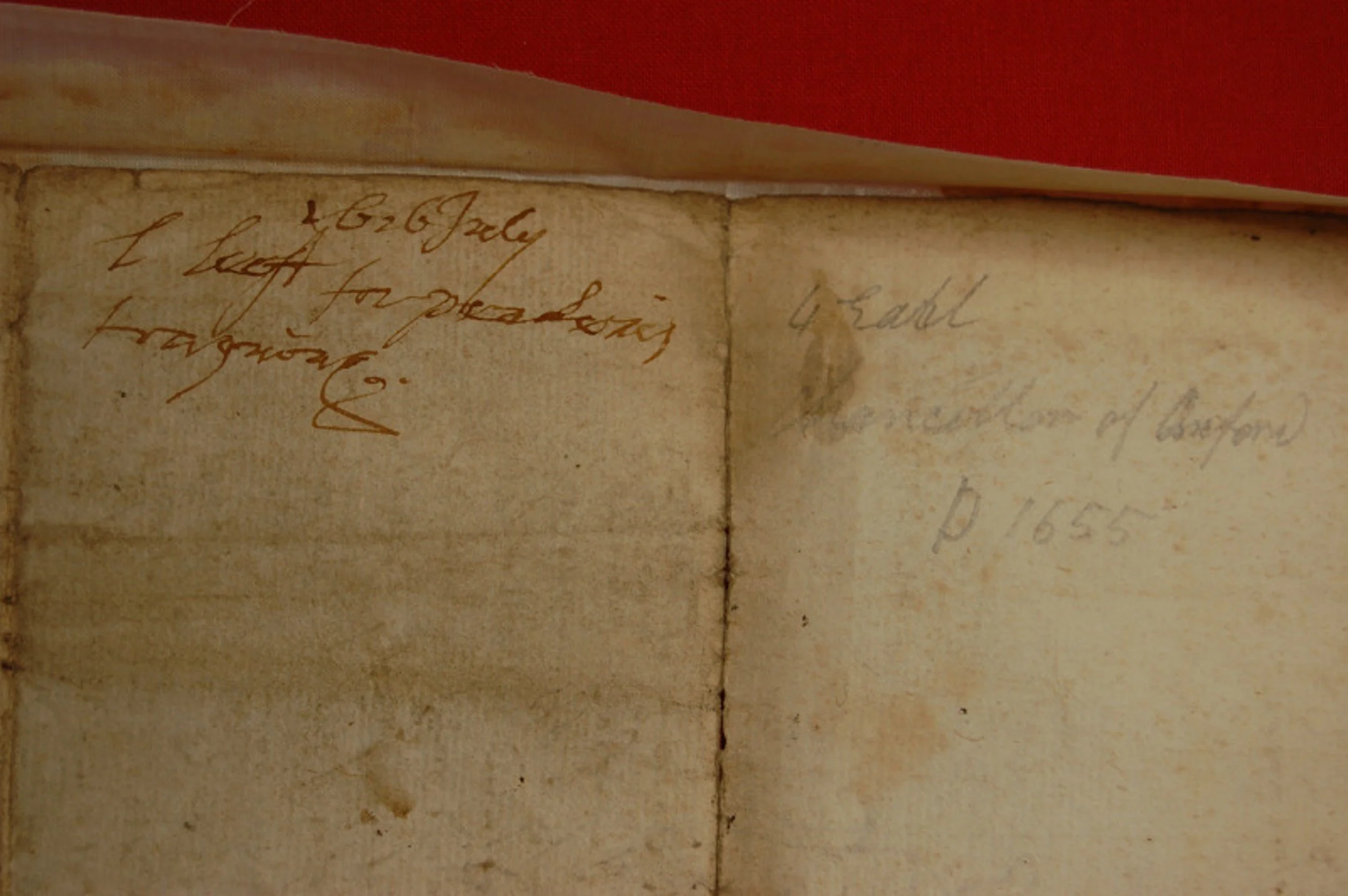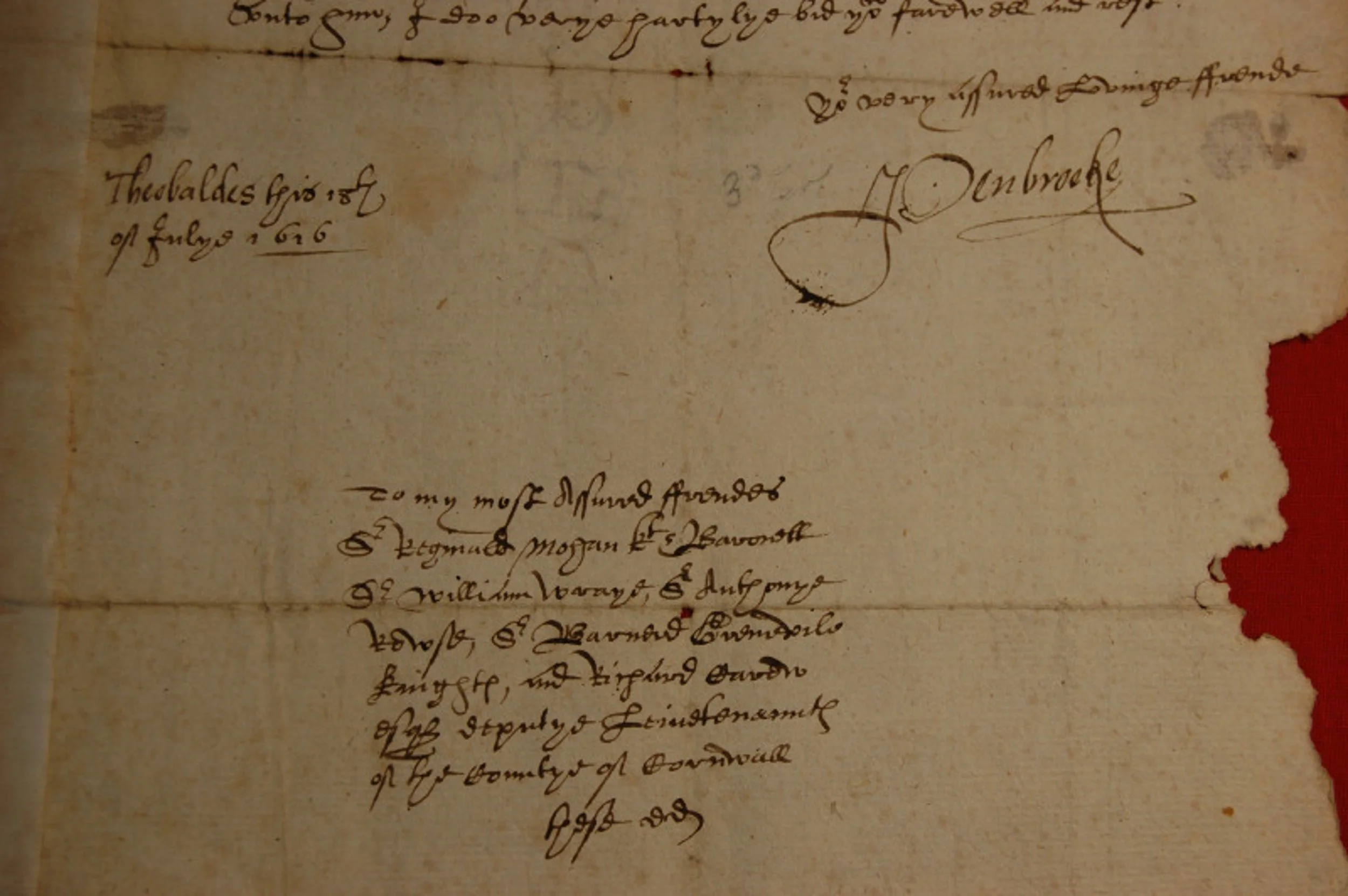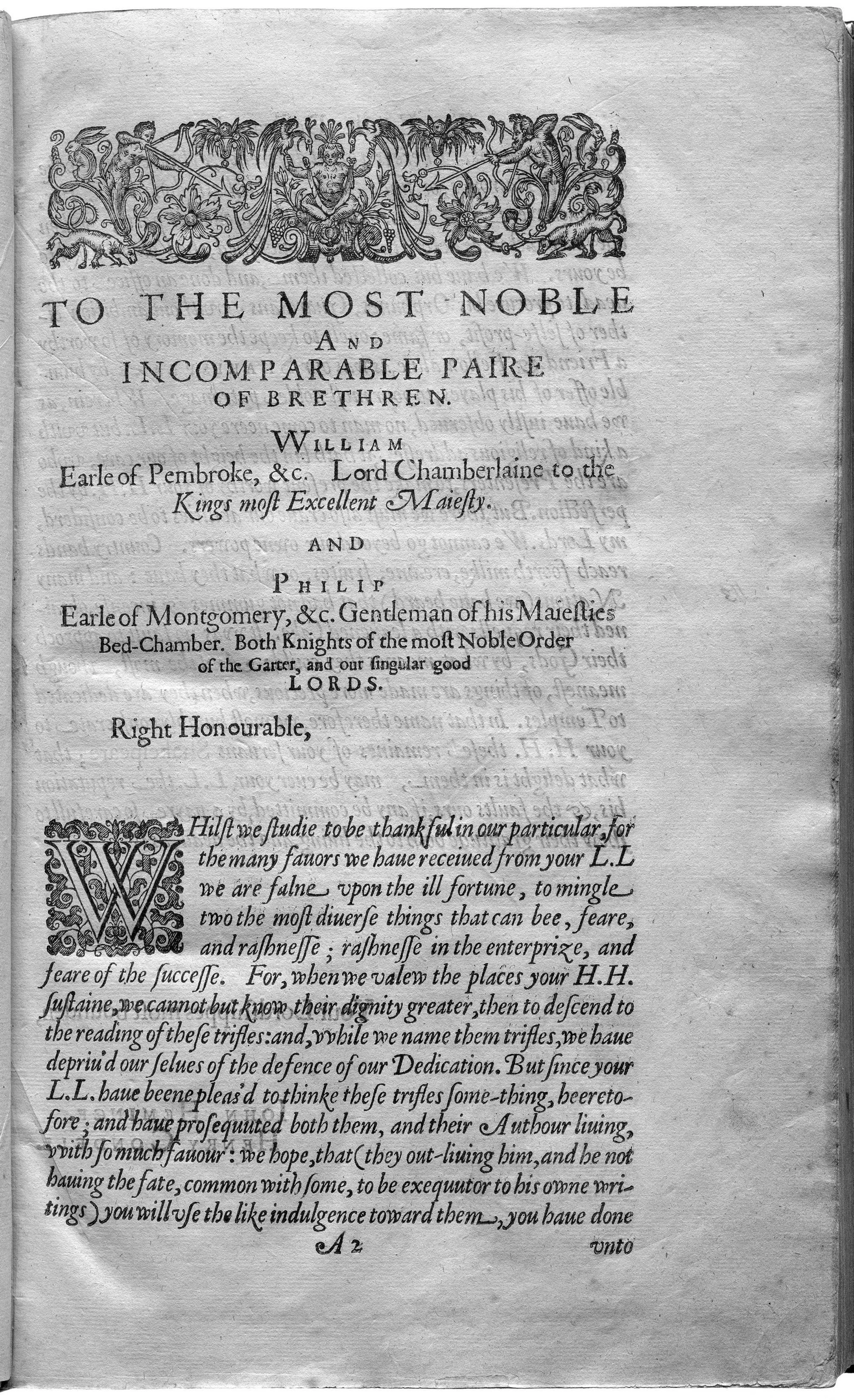 Image 1 of 6
Image 1 of 6

 Image 2 of 6
Image 2 of 6

 Image 3 of 6
Image 3 of 6

 Image 4 of 6
Image 4 of 6

 Image 5 of 6
Image 5 of 6

 Image 6 of 6
Image 6 of 6







Letter signed by William Herbert, "Mr W.H." dedicatee of Shakespeare's Sonnets
HERBERT, William, 3rd Earl of Pembroke (1580-1630) and Mohan, Sir Reginald, 1st Baronet (1564-1639)
Format: Manuscript. Folio. 305 x 200 mm. Some loss at right hand margin affecting the text; endorsed on verso.
Description: Letter signed ("Penbrocke") to Sir Reginald Mohan. Pembroke had been Lord Lieutenant of Cornwall since 1604, and here he addresses his deputies about Pendennis Castle. Among his correspondents is Richard Carew - almost certainly the antiquary Richard Carew of Antony (1555-1620), author of the Survey of Cornwall.
Dated 18 July 1616, just three months after Shakespeare's death.
William Herbert, third Earl of Pembroke, was one of the most important patrons of the arts in the early seventeenth century. Pembroke may well have been the mysterious “Mr. W.H.” to whom the 1609 edition of Shakespeare’s Sonnets is dedicated, and many believe that there was some degree of intimacy between the earl and the playwright. The distinguished scholar Katherine Duncan-Jones points out that a letter Pembroke wrote in May 1619 testifies to his affection for one of Shakespeare’s fellow actors and closest friends, Richard Burbage, who had died in March: “even now all the company are at the play, which I being tender hearted could not endure to see so soon after the loss of my old acquaintance Burbage.” Duncan-Jones reads Pembroke’s absence from this play performed at court as “a deliberate signal of his special personal affection for the leading actor of the age. It was a public display of a private loss.” The play performed that night was Pericles. As Duncan-Jones observes, “Pembroke’s 'tender hearted' recollection of the dead Burbage may also have encompassed sad memories of the play’s chief author, Shakespeare, dead three years earlier.”
William Herbert’s younger brother, Philip, was also a patron of the arts, and the Shakespeare First Folio (1623) was dedicated to this “noble and incomparable pair of brethren.”
The actors Heminges and Condell wittily assert that since the brothers took such pleasure in Shakespeare’s plays when they were performed, the book itself wished to be dedicated to them: “For so much were your lordships’ likings of the several parts when they were acted as, before they were published, the volume asked to be yours.” (The Pembroke brothers came to their love of the arts naturally: Their mother, Mary Herbert, was Sir Philip Sidney’s sister and one of the first English women to gain a reputation for her literary works, poetry, poetic translations, and literary patronage, and was said to inspire creativity in all of those around her.)
HERBERT, William, 3rd Earl of Pembroke (1580-1630) and Mohan, Sir Reginald, 1st Baronet (1564-1639)
Format: Manuscript. Folio. 305 x 200 mm. Some loss at right hand margin affecting the text; endorsed on verso.
Description: Letter signed ("Penbrocke") to Sir Reginald Mohan. Pembroke had been Lord Lieutenant of Cornwall since 1604, and here he addresses his deputies about Pendennis Castle. Among his correspondents is Richard Carew - almost certainly the antiquary Richard Carew of Antony (1555-1620), author of the Survey of Cornwall.
Dated 18 July 1616, just three months after Shakespeare's death.
William Herbert, third Earl of Pembroke, was one of the most important patrons of the arts in the early seventeenth century. Pembroke may well have been the mysterious “Mr. W.H.” to whom the 1609 edition of Shakespeare’s Sonnets is dedicated, and many believe that there was some degree of intimacy between the earl and the playwright. The distinguished scholar Katherine Duncan-Jones points out that a letter Pembroke wrote in May 1619 testifies to his affection for one of Shakespeare’s fellow actors and closest friends, Richard Burbage, who had died in March: “even now all the company are at the play, which I being tender hearted could not endure to see so soon after the loss of my old acquaintance Burbage.” Duncan-Jones reads Pembroke’s absence from this play performed at court as “a deliberate signal of his special personal affection for the leading actor of the age. It was a public display of a private loss.” The play performed that night was Pericles. As Duncan-Jones observes, “Pembroke’s 'tender hearted' recollection of the dead Burbage may also have encompassed sad memories of the play’s chief author, Shakespeare, dead three years earlier.”
William Herbert’s younger brother, Philip, was also a patron of the arts, and the Shakespeare First Folio (1623) was dedicated to this “noble and incomparable pair of brethren.”
The actors Heminges and Condell wittily assert that since the brothers took such pleasure in Shakespeare’s plays when they were performed, the book itself wished to be dedicated to them: “For so much were your lordships’ likings of the several parts when they were acted as, before they were published, the volume asked to be yours.” (The Pembroke brothers came to their love of the arts naturally: Their mother, Mary Herbert, was Sir Philip Sidney’s sister and one of the first English women to gain a reputation for her literary works, poetry, poetic translations, and literary patronage, and was said to inspire creativity in all of those around her.)

